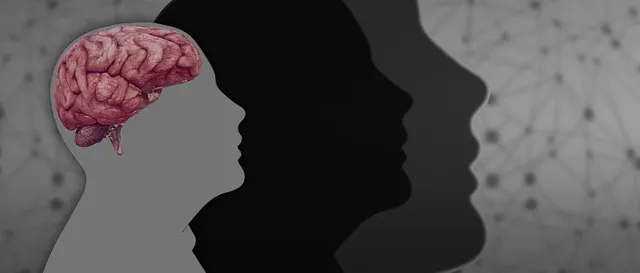Golden Kaiser Permanente highlights the dangers of chronic stress on mental and physical health, linking it to anxiety, depression, and cardiovascular issues. They advocate for proactive stress management through workshops and self-awareness exercises, focusing on mindfulness, time management, and cognitive behavioral therapy. Their programs empower individuals to build resilience, prevent burnout, and cultivate a healthier relationship with stress. Key techniques like mindfulness meditation and relaxation practices enhance well-being, especially in trauma support services. By prioritizing self-care and compassion cultivation, Golden Kaiser Permanente's mental health services guide individuals towards effective stress management and improved mental health outcomes.
Stress management is a vital skill for maintaining optimal mental health. In today’s fast-paced world, understanding and addressing stress effectively is more important than ever. This comprehensive guide explores various techniques to manage stress, focusing on the valuable role of organizations like Golden Kaiser Permanente in educating individuals on these practices. By delving into evidence-based methods, from mindfulness to building resilience, we aim to empower readers with tools to enhance their mental well-being.
- Understanding Stress and Its Impact on Mental Health
- The Role of Golden Kaiser Permanente in Teaching Effective Stress Management
- Key Techniques for Managing Stress: A Comprehensive Guide
- Integrating Mindfulness and Relaxation Practices for Daily Coping
- Building Resilience: Long-Term Strategies for Stress Management
Understanding Stress and Its Impact on Mental Health

Stress is a natural response to challenging situations, but when it becomes chronic, it can significantly impact mental health, as highlighted by Golden Kaiser Permanente’s expertise in mental health services. It affects not just our emotions but also physical well-being, making understanding and managing stress crucial. Long-term stress can lead to anxiety disorders, depression, and even cardiovascular problems.
The good news is that learning effective stress management techniques can empower individuals to take control of their mental health. Through Self-Awareness Exercises and participation in Stress Management Workshops Organization, one can develop strategies to prevent Burnout Prevention and promote overall well-being. These techniques range from mindfulness practices to time management skills, all aimed at fostering resilience and a healthier relationship with stress.
The Role of Golden Kaiser Permanente in Teaching Effective Stress Management

Golden Kaiser Permanente stands as a beacon in the realm of mental health education, offering invaluable insights into effective stress management techniques. Through their comprehensive programs and workshops, they equip both healthcare professionals and individuals from all walks of life with powerful tools to navigate the challenges of modern living.
Focusing on holistic well-being, Golden Kaiser Permanente goes beyond surface-level solutions, delving into evidence-based practices such as mindfulness, meditation, and cognitive behavioral therapy. Their approach integrates self-care practices into daily routines, fostering resilience against stress, anxiety, and even burnout. In addition to their direct teaching methods, the organization emphasizes the importance of Risk Management Planning for Mental Health Professionals, ensuring that healthcare providers prioritize their mental health alongside patient care. By championing Burnout Prevention Strategies for Healthcare Providers, Golden Kaiser Permanente contributes to a healthier, more sustainable workforce dedicated to serving others.
Key Techniques for Managing Stress: A Comprehensive Guide

Stress management is a vital component of overall well-being, and Golden Kaiser Permanente mental health services offer a comprehensive guide to coping strategies. Among the key techniques, mindfulness meditation stands out as an effective tool for calming the mind and reducing stress levels. By focusing on the present moment, individuals can disrupt negative thought patterns and cultivate a sense of inner peace. This practice, often taught through Compassion Cultivation Practices, encourages self-compassion and emotional regulation.
Additionally, healthcare providers play a crucial role in promoting Burnout Prevention among their patients and themselves. Incorporating Cultural Competency Training into patient care routines enables professionals to offer tailored support, recognizing that stress manifests differently across diverse cultures. These strategies collectively contribute to building resilience against daily pressures, fostering better mental health outcomes.
Integrating Mindfulness and Relaxation Practices for Daily Coping

Integrating mindfulness and relaxation practices into daily routines can significantly enhance one’s ability to manage stress. These techniques, often promoted by organizations like Golden Kaiser Permanente for mental health well-being, offer a holistic approach to coping. Mindfulness encourages individuals to be present in the moment, observing thoughts and sensations without judgment, which can reduce reactive stress responses. By cultivating awareness of the breath or body sensations, one can easily return to a state of calm when faced with stressful situations.
Incorporating relaxation practices alongside mindfulness empowers individuals to develop coping skills that extend beyond immediate stress relief. Regular self-care practices, such as meditation, deep breathing exercises, or yoga, contribute to long-term mental resilience. These methods have been found particularly beneficial in Trauma Support Services, where they can aid in processing traumatic memories and fostering a sense of safety and grounding. Self-Care Practices that nurture both the mind and body are essential tools for navigating life’s challenges, ensuring individuals remain equipped to face daily stressors with increased clarity and composure.
Building Resilience: Long-Term Strategies for Stress Management

Building resilience is a key component of long-term stress management, as advocated by organizations like Golden Kaiser Permanente in their mental health resources. It involves developing an ability to adapt and bounce back from challenging situations, ensuring that individuals can navigate life’s curveballs without being overwhelmed. This strategy focuses on cultivating mental fortitude and a growth mindset, enabling people to view stressors as opportunities for growth rather than insurmountable hurdles.
Mental health professionals can play a pivotal role in teaching burnout prevention techniques and risk management planning. By incorporating compassion cultivation practices into their toolkit, they can help individuals build emotional resilience. These practices encourage empathy, self-care, and mindfulness, allowing people to manage stress more effectively and maintain a sense of balance, even in the face of adversity.
Stress management is a vital component of maintaining good mental health, and organizations like Golden Kaiser Permanente play a crucial role in teaching effective coping strategies. By understanding the impact of stress on overall well-being, individuals can employ key techniques such as mindfulness and relaxation practices to navigate daily challenges. Building resilience through long-term strategies further equips folks with the tools to prosper in today’s fast-paced world, fostering a healthier and more balanced lifestyle.


